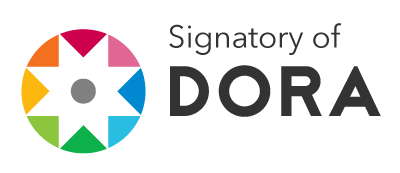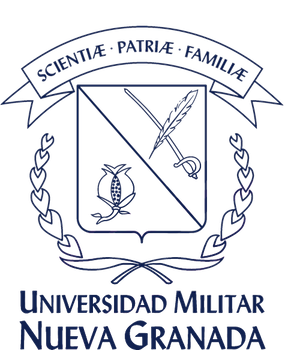Feasibility analysis of a system of education B-learning: case study University of san Buenaventura
Abstract
This article describes the feasibility of implementing the educational modality known as Blended learning in the specialization of petroleum refining and basic petrochemical processes engineering at the University of San Buenaventura, Cartagena branch. For this purpose, information was collected through virtual surveys carried out on the target population, the study of the economic and financial viability of the project was carried out and the results were presented to the corresponding entities of the University. Within the study, we identified nine drivers or agents motivating decision as well as the financial viability obtained through indicators such as net present value and internal rate of return. As a result, it was determined that the implementation of this modality creates a great business opportunity for the University, aligned with its corporate education strategy and with a spirit of service to the community. Consequently, this specialization could be carried out in the B-learning mode, due to the lack of time of the target population to attend one hundred percent classroom sessions and to the fact that the institution has the technological platform, financial support and Nationwide recognition.
Downloads
References
Abella, A. (2012). La toma de decisiones basada en drivers. Recuperado de http://www.diarioveloz.com/notas/47988-la-toma-decisiones-basada-drivers.
Acevedo, C. (2011). Formato Matriz FODA y O.E.T. Santiago de Chile: N.A.
Alemany, D. (2014). Blended Learning: Modelo virtual-presencial de aprendizaje y su ubicación en entornos educativos. Presentado en I Congreso Internacional Escuela y TIC- IV Forum Novadors más allá del software Libre. Congreso llevado a cabo en Alicante, España.
Bohorquez, M. V. U., & Algarra, C. O. (SF) EL PROCESO DE ANÁLISIS JERÁRQUICO: EL LAZO INTEGRADOR ENTRE EL BALANCED SCORECARD Y EL COSTEO BASADO EN ACTIVIDADES.
Chain, N. (2006). Proyectos de inversión formulación y evaluación. Mexico: Pearson Publications Company.
Graham, C., Bonk, C., Cross, J., & Moore, M. (2006). The Handbook of Blended Learning: Global Perspectives, Local Designs. San Francisco: Pfeiffer.
Kabassi, K., Ntouzevits, A., Pomonis, T., Papastathopoulos, G., & and Vozaitis, Y. (2016). Evaluating a learning management system for blended learning in Greek higher education. En: Springerplus, 4-9.
https://doi.org/10.1186/s40064-016-1705-8
Krasnova, T., & Ivan, V. (2016). Blended Learning Perception among Undergraduate Engineering Students. En: International Journal of Emerging Technologies in Learning, 2-12. https://doi.org/10.3991/ijet.v11i01.4901
Martinez, A. (2012). Crecimiento de la industria petrolera impactará positivamente sectores de bienes y servicios e infraestructura. Recuperado de: http://www.acp.com.co
Ministerio de Educación Nacional (2011) Región Caribe (Costa Atlántica) en Educación (Atlántico, Bolívar, Magdalena, La Guajira, Cesar, Córdoba, Sucre y San Andres y Providencia). Recuperado de:
www.mineducacion.gov.co/1621/articles-283230_archivo_pdf_perfil.pdf
Littlejohn, A., & Pegler, C. (2007). Preparing for blended e-learning. Routledge.
Ochoa J., &. S. (2004). 101 Claves de tecnologías de la información para directivos: Conceptos y estrategias para sacar partido a las TI. Madrid: Pearson Educación, S.A.
Padilla, J. E. (2011). La educación virtual en Colombia: la implementación de las TIC en la educación superior. Academia y Virtualidad, 4(1), 6- Recuperado de: https://revistas.unimilitar.edu.co/index.php/ravi/article/view/2618/2378
Padilla, M. C. (20011). Formulación y Evaluación de Proyectos. Bogotá D.C: Eco Ediciones.
Poon, J. (2013). Blended Learning: An Institutional Approach for Enhancing Students' Learning Experiences. En: Journal of Online Learning and Teaching (2), 1-12.
Porter, W. W., Graham, C. R., Bodily, R. G., & Sandberg, D. S. (2016). A qualitative analysis of institutional drivers and barriers to blended learning adoption in higher education. En: The internet and Higher education, 17-27. https://doi.org/10.1016/j.iheduc.2015.08.003
Revista Petroquímica. (2011). Especialización a distancia en Industria Petroquímica: Recuperado de: http://revistapetroquimica.com/especializacion-a-distancia-en-industria-petroquimica/
Saavedra Trujillo, N. F., & Jiménez Inocencio, F. Y. (2014). Necesidades de Innovación y Tecnología para la industria de petróleo y gas en Colombia. Revista de Ingeniería, (40), 50-56.











